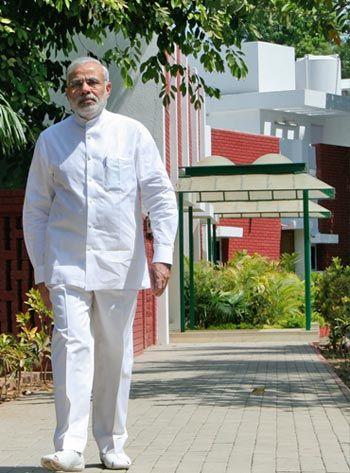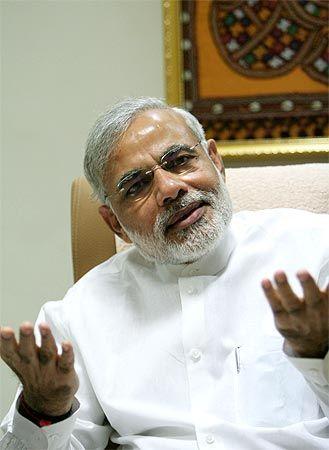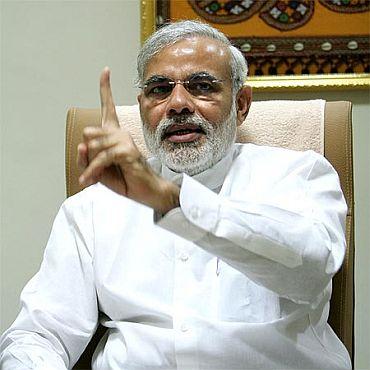
Gujarat Chief Minister Narendra Modi is in the headlines once again. This time round it's thanks to WikiLeaks, which in a leaked United States diplomatic cable has revealed how the US diverged from its no-interaction stance on the Bharatiya Janata Party leader.
Modi, whose American visa was revoked at the level of the consul general in 2005 over his alleged role in the 2002 communal violence in Gujarat, was sought after by US diplomats owing to his fast rising stature in national politics, a WikiLeaks cable accessed by The Hindu newspaper said.
Analysing the importance of dealing with Modi, Michael S Owen, consul general in Mumbai, in a cable dated November 2, 2006, said: "If Modi does eventually get a national leadership role in the BJP in the foreseeable future, the USG (United States government) will be obliged to decide how it wants to deal with a figure of national prominence whose B1/B2 we revoked. We believe it would dilute our influence to avoid Modi completely."
...

If we waited to engage Modi after he attains national stature within India's largest and most important opposition party, many in the BJP would likely view this as an opportunistic move and only deepen the suspicions cultivated by some BJP leaders in western India since the visa revocation," the diplomat said in his cable.
"Since the riots of 2002, we have declined to engage Modi at the ambassadorial level, but Mumbai consul generals have routinely sought meetings with Modi whenever they visited Ahmedabad. We will continue to seek such meetings at the level of the CG to emphasise that the USG does not have a formal no-contact policy and to demonstrate to the BJP that we are interested in cultivating relationships with the party while it is in the opposition."
"Direct encounters with Modi will also enable us to deliver a clear message regarding USG concerns for the state of human rights and religious freedom in Gujarat."

Owen also outlined his analysis of Modi thus:
"Modi has successfully branded himself as a non-corrupt, effective administrator, as a facilitator of business in a state with a deep commercial culture, and as a no-nonsense, law-and-order politician who looks after the interests of the Hindu majority. In public appearances, Modi can be charming and likeable. By all accounts, however, he is an insular, distrustful person who rules with a small group of advisors. This inner circle acts as a buffer between the chief minister and his cabinet and party," he said.
"He reigns more by fear and intimidation than by inclusiveness and consensus, and is rude, condescending and often derogatory to even high level party officials. He hoards power and often leaves his ministers in the cold when making decisions that affect their portfolios," the cable added.